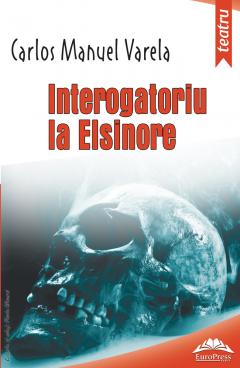Editie bilingva.
Pentru spectatorul iniţiat ȋn aspectele politice ale teatrului shakespearian, piesa lui Carlos Manuel Varela Interrogatoriu la Elsinore propune „un fel de palimpsest lărgit” al lui Hamlet, care aduce pe scenă un Elsinore fictiv, conectat la realitatea traumatizantă din Uruguay în perioada dictaturii militare. Pentru cititorul fascinat de literatura comparată şi implicat ȋn lumea teatrului, Interrogatorio en Elsinore se aseamănă cu piesa lui Nedjalko Iordanov, The Murder of Gonzago, aducând ȋn prim-plan un paralelism născut din ideologii extreme, neo-fascismul şi comunismul, şi regimul lor instituţionalizat de teroare. Ambele piese se bazează pe influenţa hotărâtoare a lui Hamlet pentru a reflecta la rolul important al artistului implicat în politică.
For the spectator initiated in the political aspect of the Shakespearean theatre, Carlos Manuel Varela’s Interrogatorio en Elsinore proposes „a kind of extended palimpsest” of Hamlet that connects on stage a troubled, fictional Elsinore to the traumatic reality of Uruguay during the military junta. For the reader fascinated by comparative literary studies and implicated in the theatre world, Interrogatorio en Elsinore resonates with Nedjalko Iordanov’s The Murder of Gonzago by drawing from parallel extreme ideologies of neo-fascist and communist dictatorships and their institutionalized regime of terror. Both plays showcase the potential of the performance in Hamlet to underpin the role of the artist in the political landscape.

